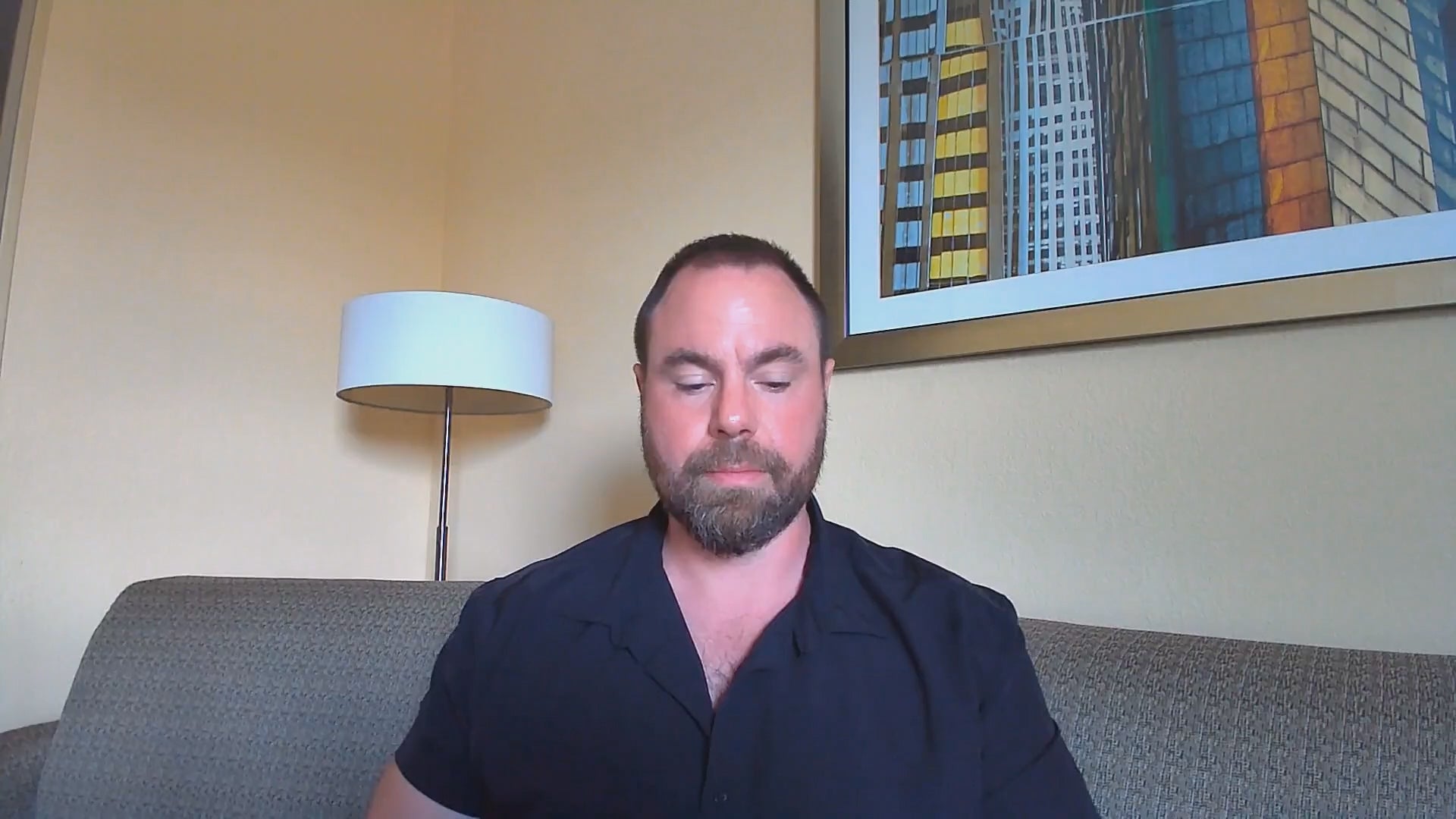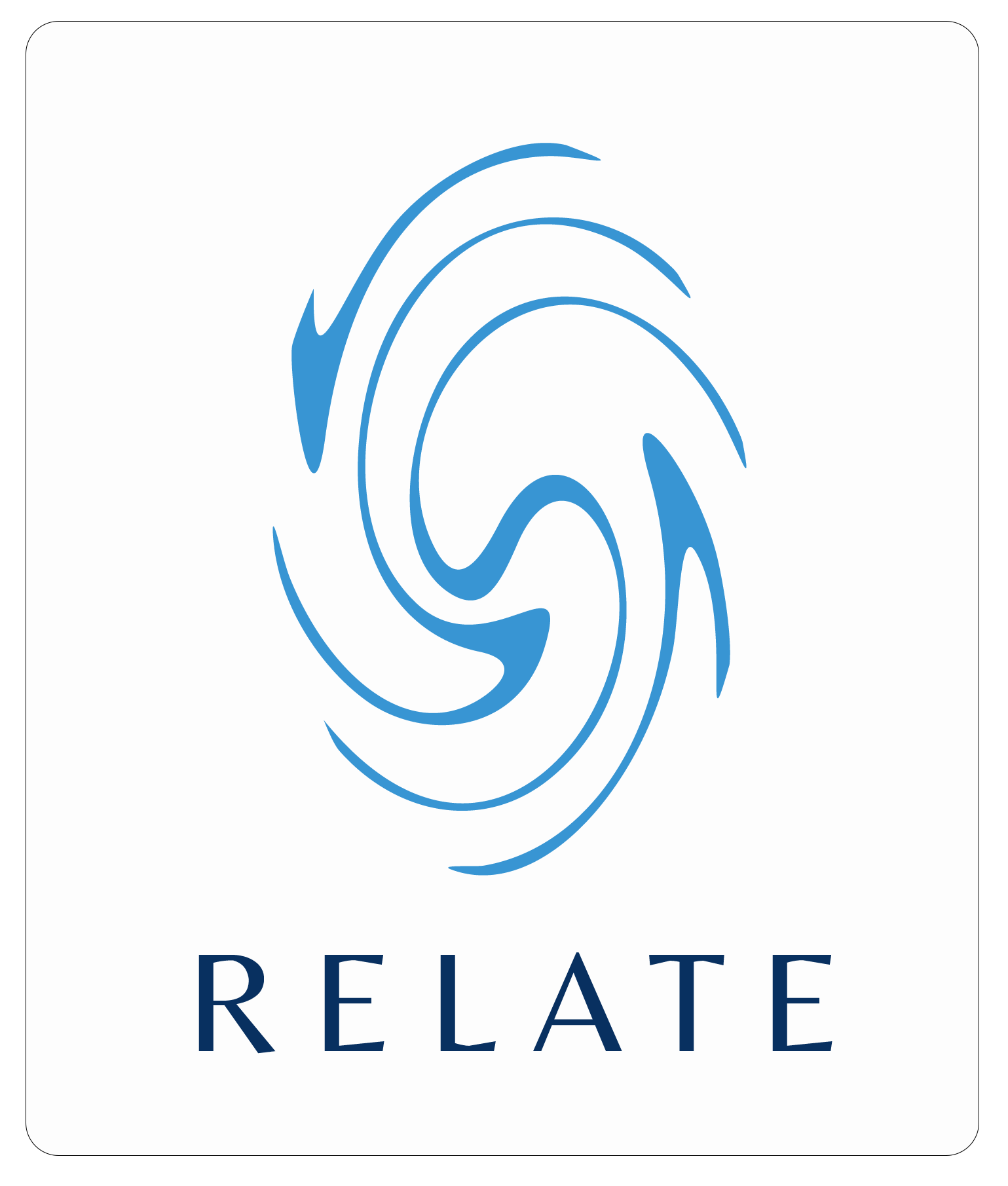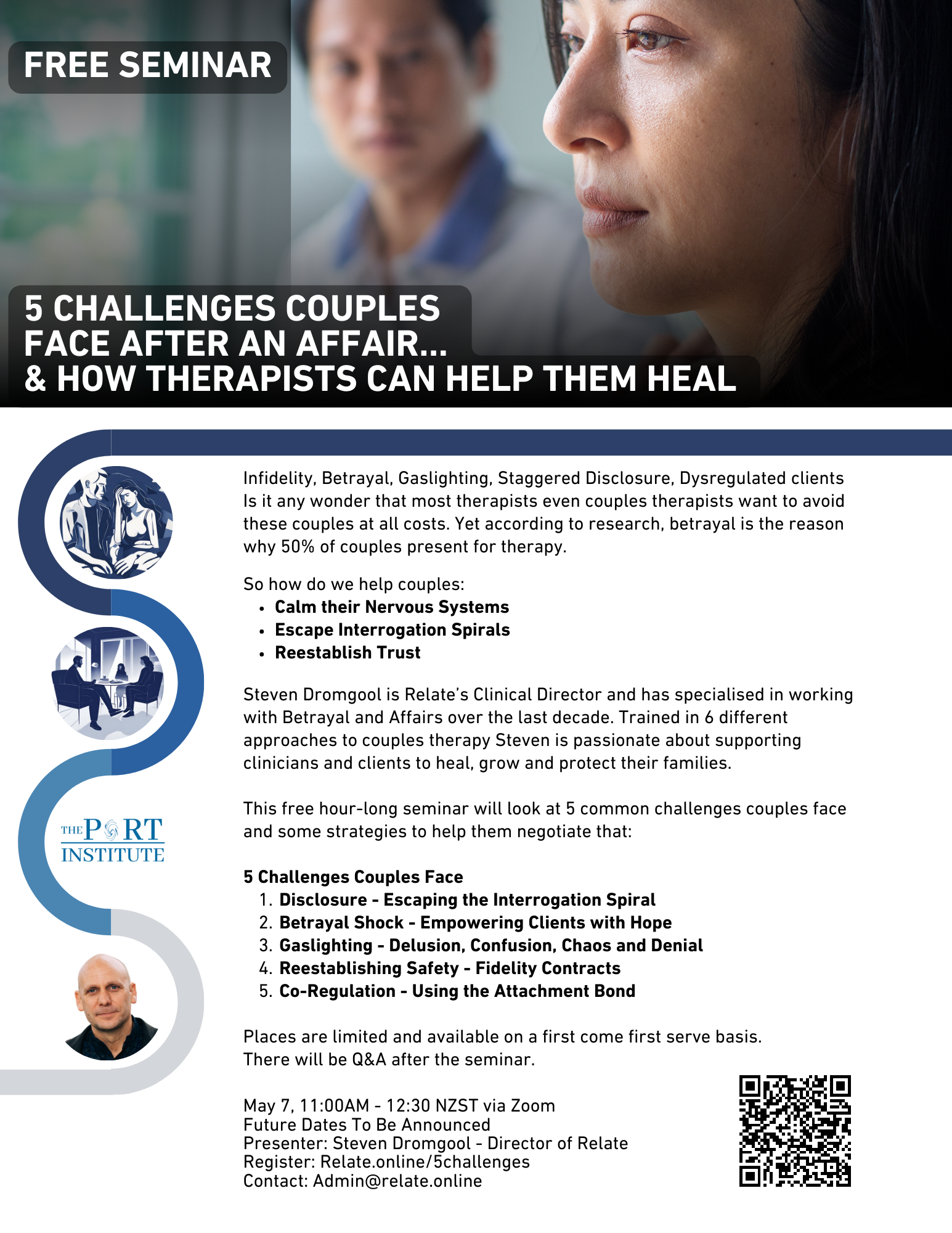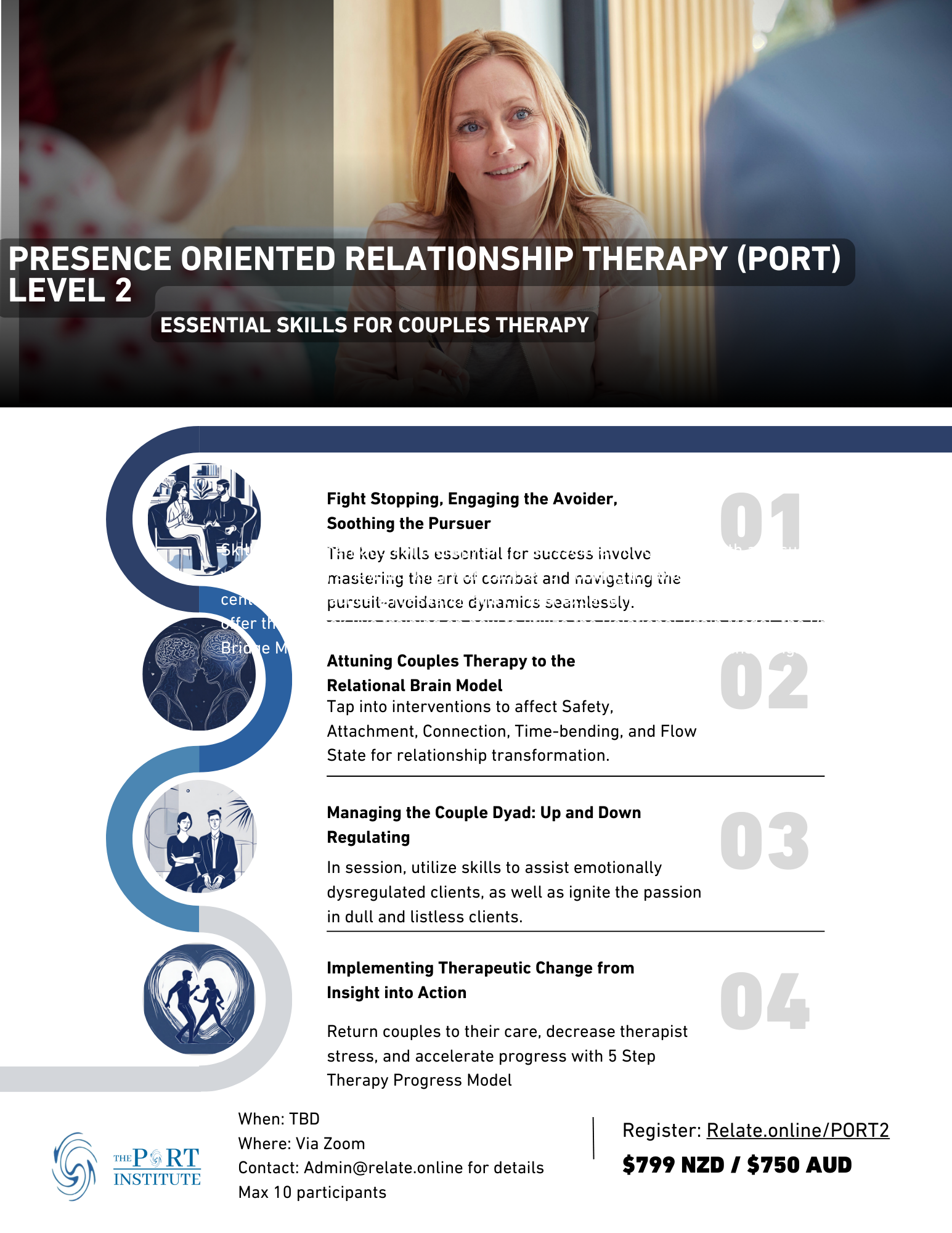

Better After Betrayal: Hope & Trust for Therapists
Better After Betrayal: Hope & Trust for Therapists
United States and Canada: For US approved Continuing Education - Register through our US Based CE Partner Engagedmindsce.com
Earn 2 CE (U.S.) Approve through NASW, ACA and NY Board of Psychology - Full Details
1 OPD (Australia) · Approval pending Register on this Page
Self-paced • Mobile-friendly • Lifetime access • Free course
Therapists rebuild trust. Trust rebuilds relationships. In under two hours, learn practical, brain-based tools to help clients—and quietly strengthen the relationships that matter most in your own life.
The first two lessons are the videos to the left.
What you’ll be able to do
- Describe how intimate partner betrayal affects the brain, relationships, trust, and attachment.
- Identify at least three common therapist errors that can unintentionally reinforce mistrust after an affair.
- Explain how brief emotional “repair” moments work as micro-interventions in betrayal recovery, using client-centered examples.
- Recognize the value of a structured betrayal-recovery model and what it means for long-term relationship repair.
Who is Better After Betrayal for?
Counselors, social workers, psychologists, pastoral counselors, and both couples and individual therapists (new grads and seasoned clinicians alike).
Quick facts (CE & logistics)
- Credits: 2 CE (U.S.); 1 OPD (Australia). Approvals pending.
- Certificate: Print instantly at completion.
- Assessment: 20-question quiz, 80% to pass. Retakes allowed.
- Format: 100% self-paced video + 4 printable PDFs.
- Access: Lifetime; watch anywhere—quizzes work on your phone.
- Support: Email us; typical reply 1–2 business days.
- Price: Free. No catch—built to give hope, clarity, and momentum.
Curriculum at a glance
1) Why Trust Is the Real Therapy Goal (Not Just Symptom Relief)
• Why healing after betrayal is possible • Self-survey on how trust shows up in your work • From insight to intervention
2) How Mistrust Shows Up—and How to Spot It Early
• Why trust is hard today • The relational brain, practically • Choice in rebuilding love • How betrayal shatters trust • The betrayal cascade • Your map forward
3) Four Micro-Interventions to Begin Rebuilding Trust Today
• Borrowed trust • Trust-focused disclosure • Sexual & developmental blueprint • From assumptions to agreements • What therapists are saying
4) When Emotions Are High and Trust Is Low—You Still Have a Path Forward
• Live demonstration • Big “B,” little “b” betrayals • Rebuilding safety, identity, reality • Ethics of voice & presence (text) • Skills for angry, hurt clients • When not to begin work (text) • Critical moments
5) What It Looks Like When Repair Begins
• Taming criticism/defensiveness • Presence & authenticity • Navigating anger • Working with shame • If you’re the kind of therapist who…
6) From Shut Down to Seen: How the PORT Model Sparks Emotional Safety
• Helping avoidant partners open up • Present-moment needs • Turning betrayal into connection • A new way to see trust
7) Can Love Return After Betrayal? What’s Possible
• Trust with the relational brain in mind • Emotional safety first • Enjoying therapy again • Why betrayal is often the core issue
8) Your Next Step: Go Beyond Insight and Into Action
• A participant’s perspective • How trust issues drive anxiety, depression, trauma • Resources for continued growth
Instructor: Steven Dromgool
Steven brings warmth, humor, and deep clinical structure to one of the most emotionally difficult forms of couples therapy. He developed the PORT method to help therapists stop “winging it” and start transforming stuck betrayal dynamics into structured healing.
CE details & compliance
- Approvals: U.S. CE (2 hours) and Australian OPD (1 unit) approval pending—most state renewals are satisfied, but please confirm via our partner’s website, EngagedMinds.
- Completion: Pass the 20-question assessment at 80%, complete the course evaluation, and print your certificate immediately.
- Recordkeeping: Retain your certificate for your records per your board’s guidance.
- Scope & ethics: Educational content only; not a therapeutic relationship. Accessibility includes captions and transcripts.
What you get (free)
- Short, tightly produced lessons you can apply tomorrow.
- 4 printable PDFs (checklists & mini-tools) for session use.
- A hopeful, trust-first lens that calms chaos and builds momentum.
- A clear next step into the 20-hour Therapist Edition if you want mastery.
FAQ
Will this satisfy my state renewal?
For most licenses, yes—but always verify on EngagedMinds (our approval partner).
How/when do I get my certificate?
At completion. You can print it instantly.
What’s the pass score? Can I retake the quiz?
80% on a 20-question assessment; retakes allowed.
Is this appropriate for new grads?
Absolutely. It contains new information on the neurobiology of trust and is equally useful for experienced clinicians.
How much does it cost?
It’s free.
What’s the format and access?
Self-paced video + PDFs, lifetime access, mobile-friendly, and quizzes run on your device.
How fast is support?
Email us; we respond within 1–2 business days.
I'm having trouble accessing the course. What do I do?
If you have already registered, but are struggling to access the course click here to access your courses.
Ready to go?
Enroll free
You’ll finish confident, hopeful, and equipped with trust-building moves that change sessions—and outcomes.
Considering the full path?
After you complete this course, unlock Better After Betrayal: Therapist Edition (20 hours) for in-depth skills, protocols, and case work.
Ready to Register? Click Add to Cart at the top of the screen.

This product has no reviews yet.





